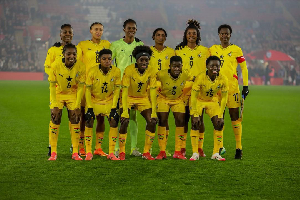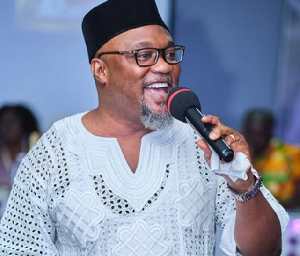Every ethnic group has unique stories behind their naming. Just like Nii and Naa are peculiar to the Ga's, and Asantewaa and Agyekum for the Akans, Ewes have names that identify them.
More often than not, many have asked why Ewes have unisex names; names that are used both by males and females. Also, it has been the interest of many, to know the mystery behind what they have described as the ‘heavy names’ of Ewes.
In this episode of People and Places, historian and spokesperson to the Awoemefia of the Anlo State, Togbi Sri III gives details about the naming system of particularly, the Anlos.
According to Togbi Kumassah, the Anlos, like all other Ewes, derive their names from events which occurred in their immediate environment during or before their births.
“The names are given based on the circumstances surrounding the births. For example, if someone is born on a market day, we’ll call them Ashigbi. If you lost your husband and you re-marry, the first daughter is Aphapha, it means peace. But if you have a male child then you are called, Adzika, it means the man was not happy leaving the man for another man.
“Names like Amemaphuokpor, it means you can’t open for someone to see. But names like Peace, they are common names, there are two or three Peace’ so they’ll have to add the surname,” he said.
He among other things explained that the unisex naming factor among this ethnic group, is one that solely has to do with choice. Togbi Kumassah was, however, quick to maintain, that there are specific names for both males and females, which are not interchanged.
“Kafui, Dzidzor, can be male or female, but there are some names that are strictly for males, Tsikata, Agbozo, they are male names.
“If I am from the Agave clan for example, the first female will have a particular name. So if you are called Kokui, they’ll know that you are the first female of an aphe or Bate clan.
“If I call you Tetteh, you are the first son of Eblu clan. The names which are shared between male and females, it doesn’t have any distinctions.
“Or some are cult names, if you are an Afa man, if you have a first daughter, it is Adogba, if it is a first man, it is Amuzu,” he added.
Watch the full video below:
General News of Thursday, 1 October 2020
Source: www.ghanaweb.com













